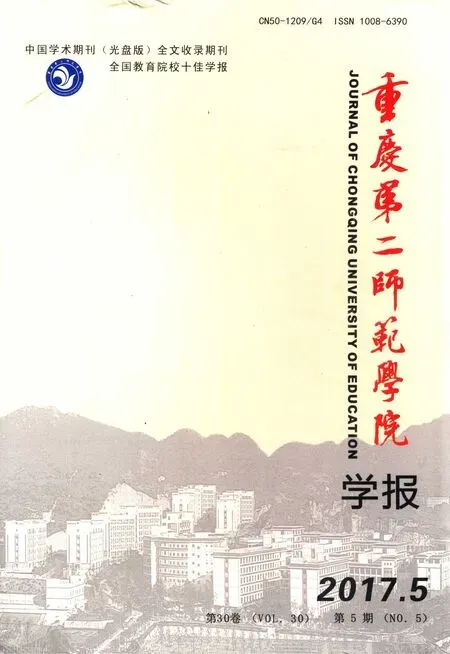Abstracts of Major Papers in Issue
sofMajorPapersinIssue
LeadingMarxismininnovativedevelopmentadheringtoproblem-orientedby WU Ying P.5
How to keep Marxism’s vigor and vitality in the course of persistence and development is an important task for the contemporary theoretical circle. To this end, theMarxism is facing many problems after the industrial revolution in Europe. Through five important cases, this paper gets such a truth: only when Marxism is confronted with the most acute and most important problems of the times, strengthening in the fieriest human practice, can it continue to innovate and maintain vitality.
Marxism; problem-oriented; the Communist Party of China; innovative development
Equilibriumstudyofworking-agepopulation’ssupplyanddemandinChinaby CHENG Yan-hua, YANG Xin-hua P.13
Under the circumstance of China’s demographic bonus decreasing gradually, this paper uses Grey System Theory and Cobb-Douglas function respectively to predict the trend of labor supply and the employment demand, drawing a conclusion that supply-demand gap may appear around 2024. It also analyzes from three aspects: fertility po-licy, retirement policy and some relevant measures; the industrial structure and family economic status; the period of schooling. At last, it puts forward some solutions to achieve the balance of labor supply and demand: Firstly, relevant laws and regulations should be improved to increase the sustainability of labor supply. Secondly, step up efforts to the propaganda, and change the model of thought. What’s more, make use of various economic means to promote the implementation of delay retirement age policy, and improve fertility desire. In the end, strengthen the education resources to make the transition from population quantity advantage to quality advantage.
Key words: working-age population; delaying retirement; fertility desire; economic structureoptimization
Viewofnationalityinpre-Qinperiodfromperspectiveof“differenceorderpattern” by YANG Yu P.24
The national concept including two aspects “self”and “other”in the pre Qin period has two characteristics: the indivisible integrity and the continuitywithout changing its basic content as the times change. The integrity and continuity is based on the idea of “the pattern of difference order”, which is an important cognitive tool in ancient Chinese society. It guaranteed the pre Qin period national concept to continue to modern times, and has had the profound influence to the Chinese society since modern times.
Key words: pre Qin period; national view; integrity; continuity; difference order pattern.
Chinese-Englishbilinguals’Englishcriticalthinkingabilitymodelconstructionfromperspectiveof“ChinaEnglish” by ZHANG Yong-jun, XU Chun-shan P.37
This paper puts forward definitions of “China English” and Chinese-English bilinguals’ English critical thinking ability, and proposes two hypotheses: Chinese-English bilinguals’ English critical thinking ability is related to his English language proficiency, Chinese language proficiency and Chinese critical thinking ability, which correspondingly, are involved in the English critical thinking ability model of Chinese-English bilinguals, and each component’s position is decided by its contribution to English critical thinking ability. The hypotheses are validated via empirical study, together with partial correlation analysis and multi-regression analysis. The successfully-constructed model is expounded within the framework of constructivism learning theory and the model’s significance on the English course arrangement of higher education is also discussed.
Key words: China English; Chinese-English bilinguals; English critical thinking ability; model construction
Confucius’musicaestheticsandpoliticalviewsofConfucianschoolby DOU Qi-yue P.59
Confucius believes that the formal specification of music will be internalized into the individual self-cultivation, make people conscious of the ideal personality construction and Isomorphism of political order; and moral essence will turn into the form of music, while the tune reflects the political situation. Confucius emphasizes tune’sfunction, and separated it from the music system integration with poetry, music and dance.The highest realm of “silent music”is even without tune.It is the continuation of reasonable political order, and also the performance of artistic idealization. From the beginning of Confucius, “music” tends to be independent from political and moral requirements. Through separating aesthetic of music from its ideology, Confucius enhanced music’s position, which departs from his political views.
Key words: Confucius; Confucian school; political views; music aesthetics
Theoreticalresearchonchildren’sfinancialeducationmodelfromperspectiveofcurriculumdevelopmentby CHENG Tian-yu P.72
Financial education has special significance for enhancing children’s social adaptability and self-development ability. Based on social learning theory and cognitive developmenttheory, this paper learns the previous financial education experience at home and abroad, and analyzesthe definition and elements of children financial education model.Then it constructs the financial education mode organization structurebased on tripartite collaborativeof “S (SOCIAL)-K (kindergarten)-F (home)”, and also the operation modelwith curriculum development as the core, in order to provide theoretical support for the follow-up study.
Key words: curriculum development; children; financial education; model
Cultivationofsocialmentality:embodimentofcontent,functionandessenceofideologicalandpoliticaleducationby XU Jia-jia P.87
With the development of ideological and political educationpractice, it hasincreasingly prominent rolein the social mentality cultivation.The good combination of the two is closely related to the internal consistency. Concretely speaking, the social mentality cultivationis an important component of the content system of ideological and political education. It is also a multi-faceted reflection of the function of ideological and political education, and also a necessary requirement for the realization of the essential purpose of ideological and political education.
Key words: social mentality; ideological and political education; content; function; essence
Oncollegestudents’competenceelementsofEnglishforgeneralacademicpurposescoursesby HE Can-wen, OU Zai-qiang P.105
In Chinese academia there lack systematic discussions on competence elements of college students of English for General Academic Purposes (EGAP) courses. This paper attempts to elaborate on competence elements of EGAP college students, based on the literature review as well as the structured and open questionnaires on the needs of the students taking EGAP courses, aiming to provide references for the setting of teaching objectives, syllabus and teaching materials development of EGAP courses. It is suggested that some competence elements in listening, speaking, reading, writing, translating and study skills be added to the Scale of Academic English Literacy Skills covered inAFrameworkofReferenceforEFLTeachingatTertiaryLevelinShanghai(TrialImplementation).
Key words: college students; English for General Academic Purposes; competence elements

